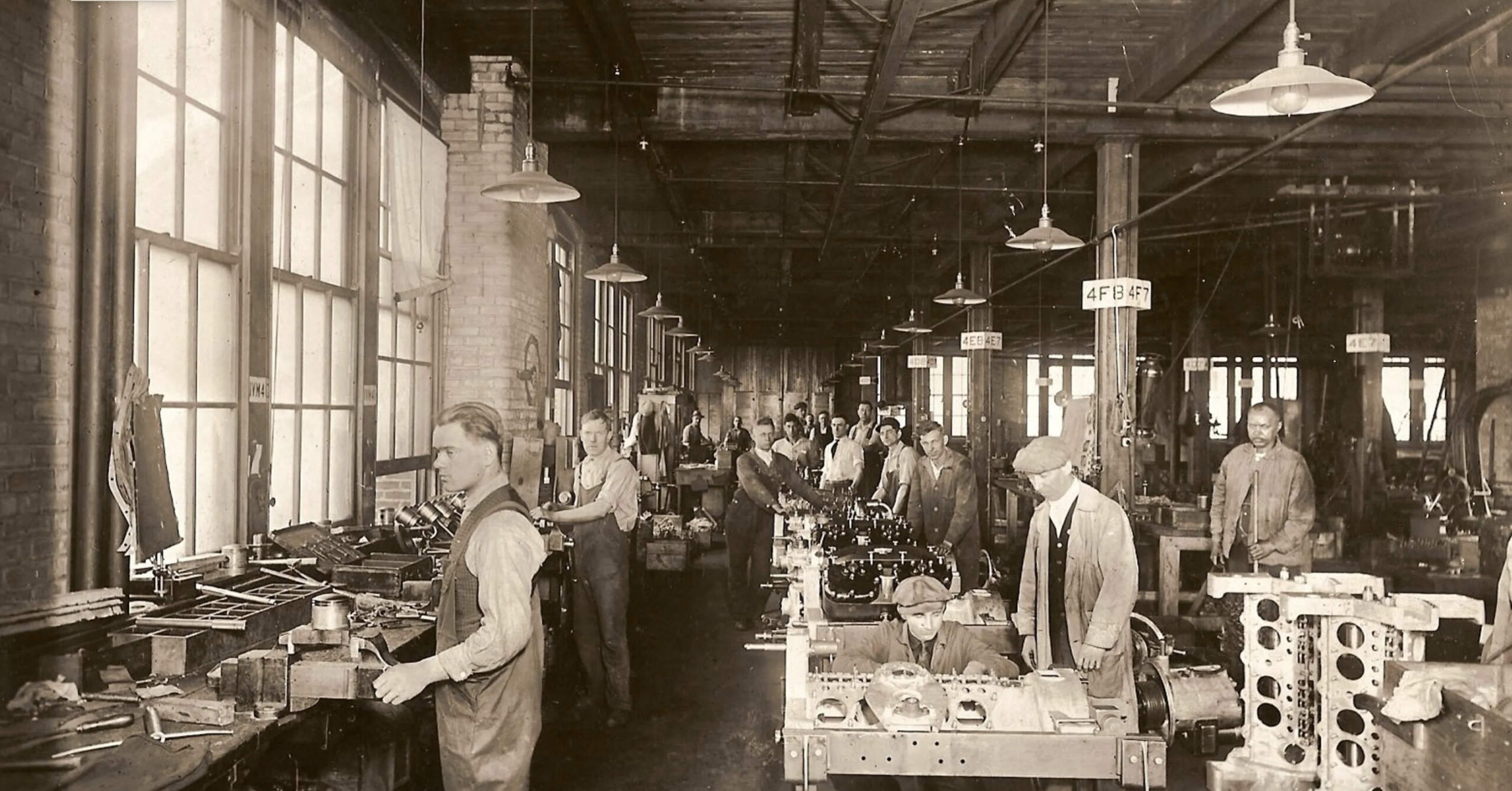Of course, we can all agree that happiness is always important.
On the other hand, most workplaces have not been designed to make people happy, they have been designed to be efficient. The vast majority of companies and organizations today are hierarchically organized. Work is split up into bits and pieces and workers work on small tasks, mostly without gaining insight into the big picture. Some workers are only there to control other workers.
This system was invented more than 100 years ago with a number of changes, all of which meant to increase productivity, not happiness. (For the record, it had been challenged by numerous socialists but the application of their theories failed even more miserably).
85% of employees worldwide are not engaged or are actively disengaged in their job. (Gallup)
Like most people on this planet, you probably go to work every day (not to discount the important work people do for their families at home, but less relevant for this topic).
You spend around eight hours at work every day, more time than you spend on anything else but sleep. Ergo, if you are not happy at work, it means you are not happy most of the time.
Many people don’t realize it but unhappiness will also make you sick. From small but inconvenient things like higher stress levels leading to weight problems — to more severe issues like high blood pressure or even burn-out.
The point is, you deserve none of this.
A toxic workplace doesn’t only make you sick, you will bring the toxicity home and your loved ones suffer, too.
And they don’t deserve it either.
Happy workers are 13% more productive. (Oxford/Saïd)
Since a lack of employee happiness is mostly a leadership issue (or at least it’s leadership’s and HR’s power to change it), it is quite astonishing that this is not on everyone’s agenda — yet.
Smart leaders know that employee happiness comes with a bunch of tangible advantages.
For starters, happy employees are way more productive. Studies have shown that an increase in happiness mostly leads to a noticeable increase in productivity. It will also make the workforce more resilient — which is very important to get organizations through rough times (e.g. a global pandemic).
Moreover, happier employees will save an organization a lot of money: people have fewer sick days, there is less turnover and some might even forgo a salary raise for more happiness.
Companies that build their business model on customer happiness know that you will only make your customers love your brand when your employees love it first. That’s why companies like Zappos or Netflix are known for having put employee happiness front and center.
And lastly, smart leaders know it is the right thing to do. If you want to be best-in-class, you will need to be at least aware of how your employees are doing with regard to their happiness.
“Customers will never love a company until the employees love it first.”
Simon Sinek
Why should everyone care about employee happiness?
Burnout is responsible for $125 to $190 billion in healthcare costs every year. These are costs we all have to carry through taxes and higher insurance premiums. Even if you are happy at work (or not working), you suffer, too. Most likely, someone in your family goes to work every day. Like many people you (and they) may think, well, work is work, it’s not a place that’s meant to be your happy place.
Tell them they are wrong.
Your workplace should also be your happy place. Everyone deserves to be as happy as they can be. There is no reason this shouldn’t apply to work.
Author: Olaf Kreitz
